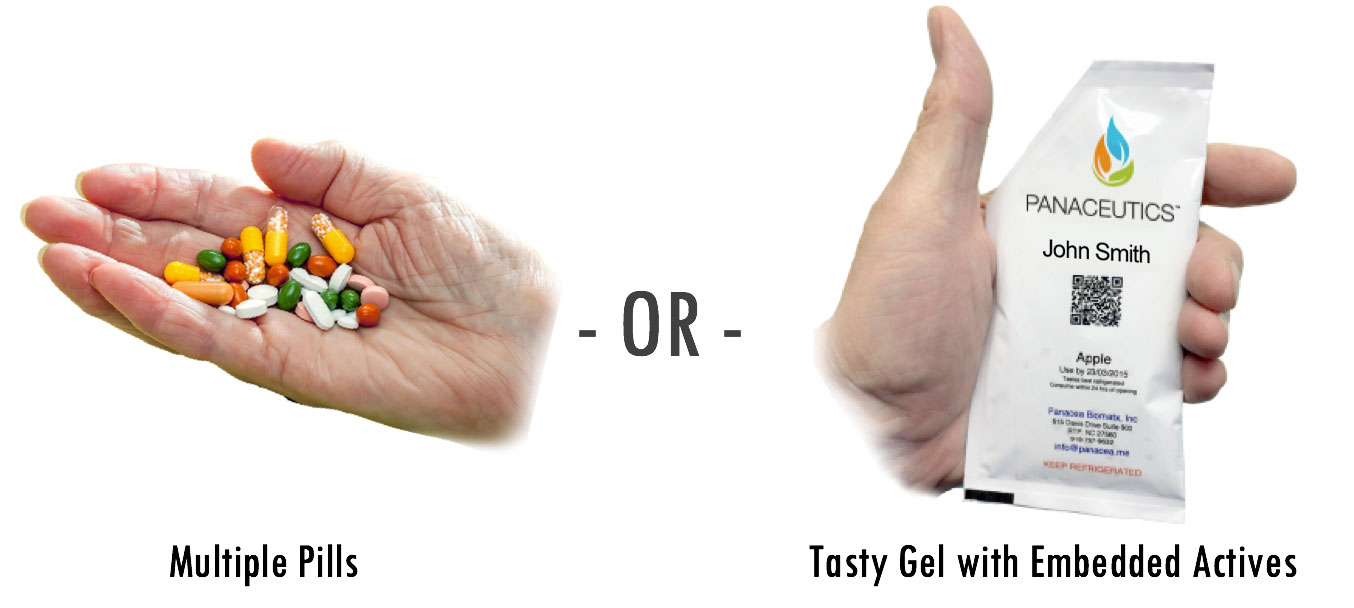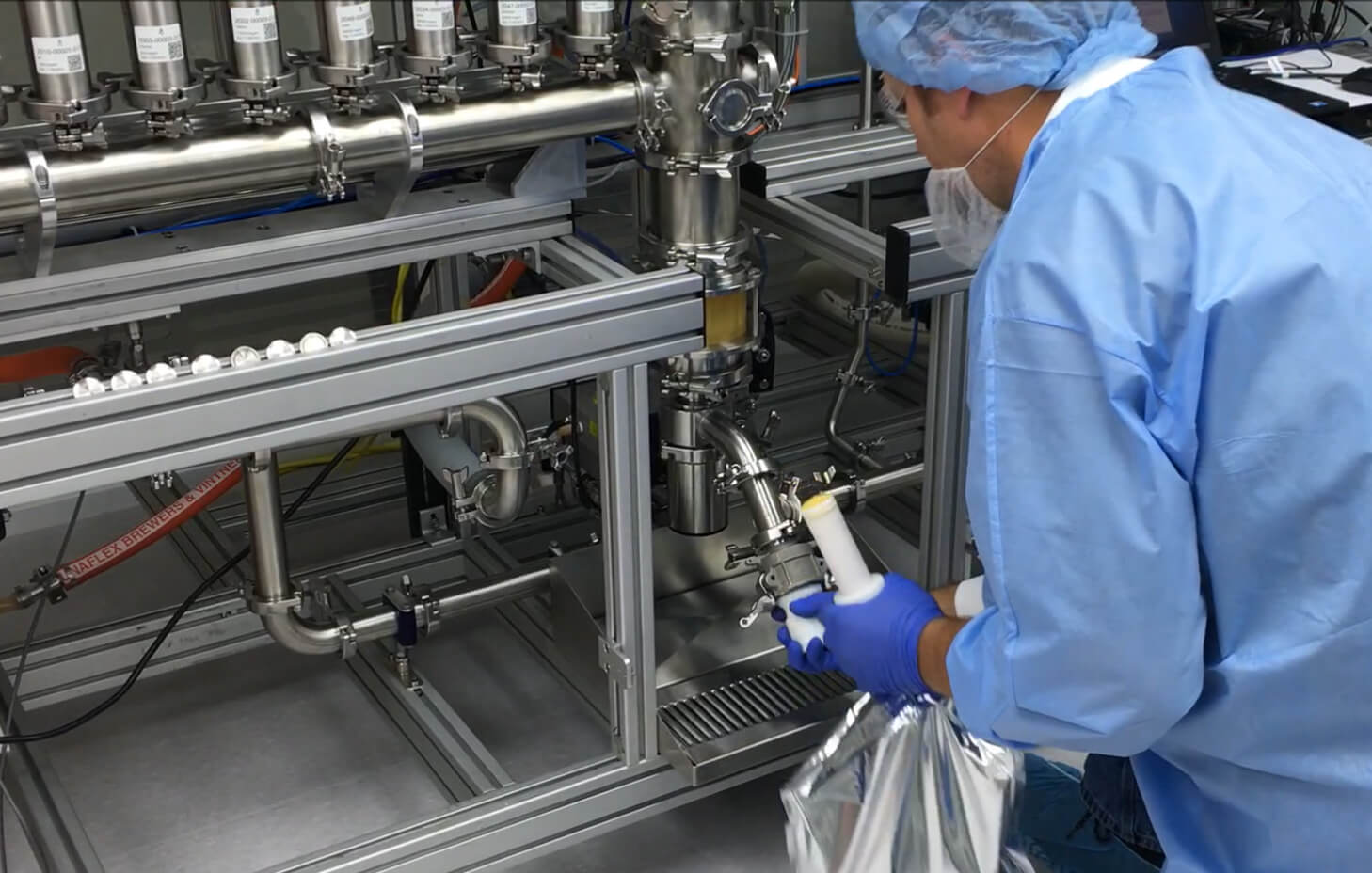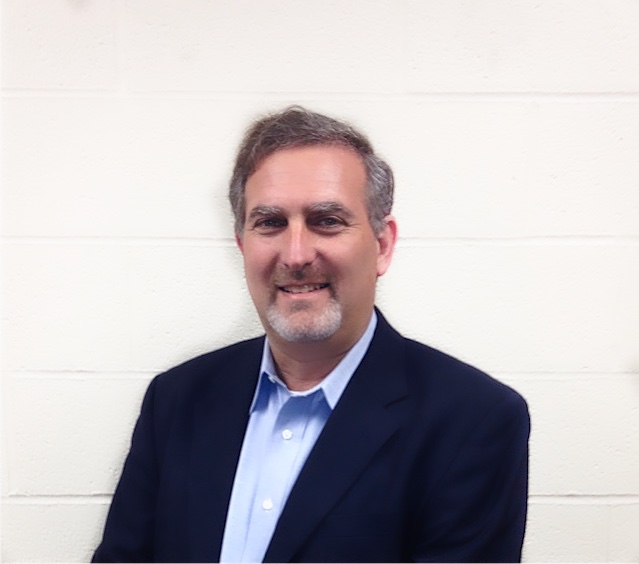
Panaceutics Scaling up for Customized Production in Personalized Medicine, Nutrition
By Barry Teater, NCBiotech Writer
 |
 |
The Research Triangle Park-based personalized medicine and clinical nutrition company formerly known as Panacea BioMatx is quickly transforming itself in 2017.
Within the last few months the company has rebranded as Panaceutics, acquired a Cary-based compounding pharmacy, leased new production space, secured a Fortune 150 client, received new investments and ramped up hiring to meet growing demand for its contract-manufacturing services.
“Personalized medicine is the future of health care,” says Andy Schwab, the company’s chief operating officer. “Panaceutics is well positioned to serve that market.”
Pill-less system
The company has developed a patent-pending automated system for producing personalized formulations of pharmaceuticals, vitamins, nutraceuticals, fish oils and herbs in gels, purees and other food bases, tailored to the specific health needs of each consumer.
Medical databases and cloud-based software are used to choose the right ingredients and dosage for an individual, and the formula is then sent to Panaceutics’ proprietary robotic system. Within four minutes, the system builds a 30-day supply of gel packs containing up to 20 combined active ingredients, using current Good Manufacturing Practices (cGMP) required by the U.S. Food and Drug Administration.
Consuming pouches of flavored purees is easier and safer than taking multiple pills, a burden that often discourages patients and consumers, especially the elderly, from taking all of their medicines and nutritional supplements as prescribed, Panaceutics says. Taking too much of a supplement or a supplement with ingredients that interact poorly with other supplements or medications can cause negative reactions.
Over 60 percent of the U.S. population takes at least one supplement a day, and almost 30 million Americans consume more than five supplements per day. In several market trials, Panaceutics says its delivery form was preferred by a large majority over taking multiple pills.
B2B strategy
After testing the pill-less concept in a direct-to-consumer model, Panaceutics is now pursuing a business-to-business strategy of “working with established brands that are looking to create novel, next-generation products that improve their customers’ health and wellbeing,” Schwab says. Panaceutics will produce custom formulations for these companies under contract.
Panaceutics recently signed a production agreement with a Fortune 150 company that it can’t publicly name, due to a non-disclosure agreement, and is bringing other companies on board.
“We’ve had interest from some large and powerful brands that are in the personal nutrition space that see the opportunity in personalized nutrition and preventative health and wellbeing,” Schwab says. The key to serving them is Panaceutics’ ability to produce small, personalized, on-demand batches that are scalable to tens of thousands of customers.
“Other contract manufacturers can’t do this,” he says.
 |
| A batch of customized nutrition formulation comes off the production line at Panaceutics. - Panaceutics photos |
Personalized medicine push
Several recent developments have ramped up Panaceutics’ ability to serve not only the nutrition market but the personalized medicine market.
The company in February announced it had acquired Triangle Compounding Pharmacy (TCP) of Cary, giving it both a state-regulated compounding pharmacy and an FDA-registered outsourcing facility that is qualified to supply hospitals, medical research institutes and clinical research organizations.
“We believe that together we can identify and develop applications for automated personalization of commonly prescribed pharmaceuticals, such as those used to prevent and treat cardiovascular disease, cancer, diabetes and other chronic diseases that require complex combinatorial drug therapies,” says Panaceutics CEO Edison Hudson.
“Merging Panaceutics’ technologies with TCP’s high-integrity GMP will result in a system that formulates and delivers the right drug, the right dose, and the right combination safely for each individual. Our efforts will make the potential healthcare benefits of precision medicine economical and scalable.”
The acquisition added 22 employees to Panaceutics’ workforce of seven full-time and seven part-time employees, and additional hiring is under way, Schwab says.
New facilities, investments
Panaceutics recently leased space in the Alexandria Center for Science, Technology and Agriculture, a campus on Davis Drive in Research Triangle Park that previously housed the Hamner Institutes for Health Sciences. The new facility will house the company’s headquarters, R&D, engineering and second-generation pilot production lines. When fully equipped next year, the cGMP facility will be able to provide personalized therapies for up to 50,000 people per month.
The company signed a long-term lease with the property’s owner, Alexandria Real Estate Equities. Alexandria’s venture capital arm, Alexandria Venture Investments, invested $500,000 in Panaceutics in December.
That investment followed a $1 million investment last spring from Sanitarium Health and Wellbeing Co., an Australian health food company, which also licensed Panaceutics’ system for exclusive use in Australia and New Zealand.
Panaceutics received in 2016 a $250,000 Small Business Research Loan from the North Carolina Biotechnology Center to develop a next-generation Pasteurization process that Schwab says “solves a quality and a scalability issue for us on the packaging side.” The company also received a $75,000 loan in 2014 and has benefited from three business interns funded by NCBiotech in each of the last three years.

“They’ve been fantastic,” Schwab says of NCBiotech’s funding, vetting, networking and referrals. “They do a great job of matching people up at the right time and in the right way to help things grow. They’ve been a great partner and have made some great introductions too. That’s the best you can hope for.”
To date, Panaceutics has raised $5.7 million in Series A financing from Sanitarium, NCBiotech, Alexandria, MDO Ventures, The Launch Place Fund, Worth Harris and others. The company is planning a B round of financing this year, Schwab says.
Graduate of First Flight
Panaceutics was co-founded in 2013 by Edison Hudson, who came from the leadership of iRobot Corp., and L. Staton Noel III, a former GlaxoSmithKline researcher who has been director of the Office of Innovation Commercialization at the University of North Carolina Greensboro since 2011.
The company spent its first year in the First Flight Venture Center, a high-tech business incubator in the Park, before moving to nearby Morrisville.
“The company managed on a tight budget to develop its initial products and build a pilot production line to prove its ideas,” Schwab says. “Now it has real traction, and its ability to grow rapidly is in place.”
